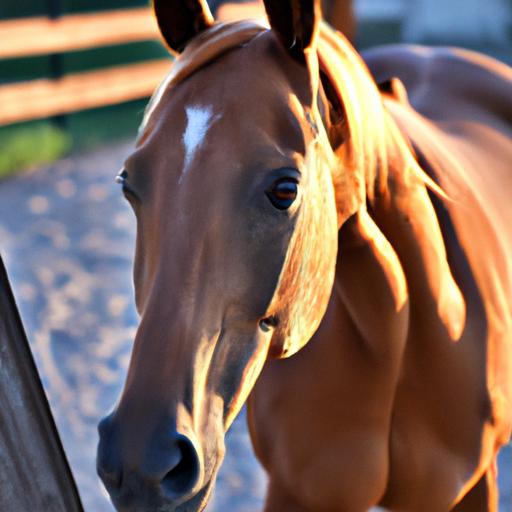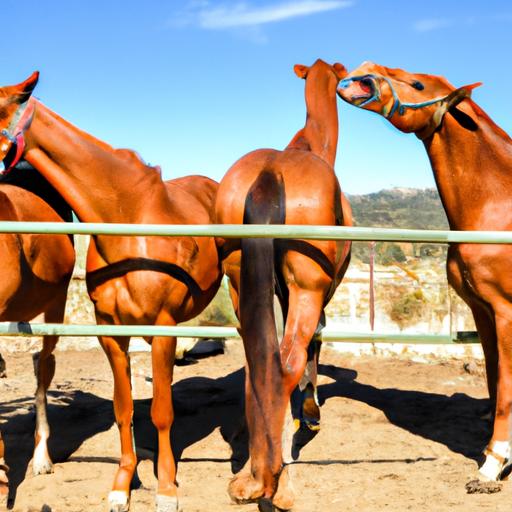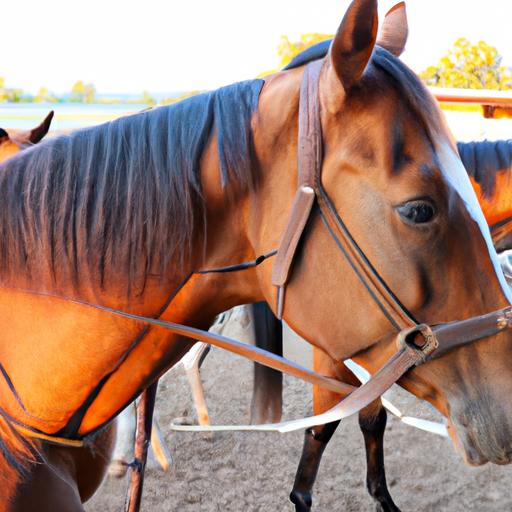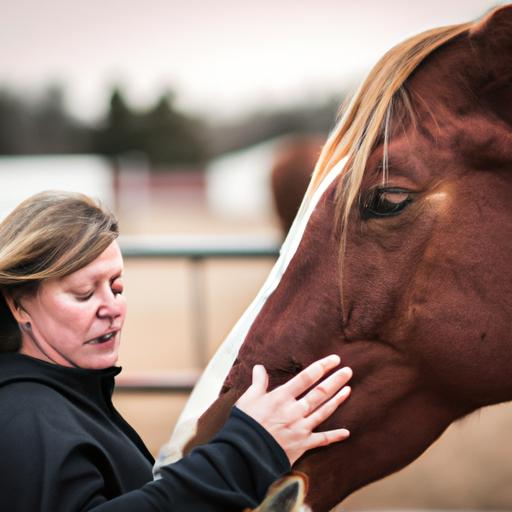Solve common horse behavior problems with expert guidance. Discover effective strategies and build a harmonious bond with your equine companion. the horse behavior problem solver is here to help.
Introduction

Have you ever wondered why your horse exhibits certain behavior problems? Perhaps your equine companion is showing signs of aggression, fear, or nervousness. Understanding these horse behavior problems is crucial for maintaining a harmonious relationship with your four-legged friend. In this article, I will guide you through the world of equine behavior and provide effective solutions to address common issues.
Understanding Horse Behavior Problems
Horses, like humans, can experience a range of behavioral challenges. These problems can manifest in various ways, such as aggression, fear, spookiness, bucking, and separation anxiety. It’s essential to comprehend that these behaviors are not random acts but rather a means of communication from your horse. By deciphering their messages, we can work towards resolving the underlying issues and creating a positive environment for our equine partners.
Importance of Addressing Horse Behavior Issues
Ignoring horse behavior problems can lead to escalating issues, compromised safety, and a strained relationship with your horse. It’s crucial to address these problems promptly to ensure the well-being of both you and your equine companion. By taking the time to understand and resolve these issues, you can establish trust, strengthen your bond, and create a harmonious partnership that will enhance your equestrian journey.
Stay tuned for the following sections, where we will dive deeper into the common horse behavior problems and explore effective strategies to solve them. Remember, every challenge presents an opportunity for growth, and together, we can overcome any hurdle on the path to becoming a skilled horse behavior problem solver. So, let’s embark on this journey towards a fulfilling and enriching relationship with your horse.
Common Horse Behavior Problems

Horses, being highly sensitive and intuitive animals, can exhibit a range of behavior problems that may pose challenges for their owners. Understanding these common horse behavior problems is essential for effectively addressing and resolving them. Let’s explore some of the most prevalent issues that horse owners encounter:
Aggression and Dominance Issues
Aggression and dominance problems can manifest in various ways, such as biting, kicking, charging, or displaying territorial behavior. These behaviors can stem from a lack of proper training, socialization, or previous negative experiences. Addressing aggression and dominance issues requires implementing consistent training techniques and establishing clear boundaries to promote respect and mutual understanding between you and your horse.
Fear and Anxiety-Related Problems
Horses are naturally prey animals, making them prone to fear and anxiety. Common triggers include loud noises, unfamiliar objects, or traumatic experiences. Fearful and anxious horses may exhibit behaviors like bolting, refusing to move, or excessive sweating. To address these issues, it is crucial to provide a safe and secure environment, gradually desensitize your horse to triggers, and engage in positive reinforcement training to build their confidence.
Spookiness and Nervousness
Spookiness and nervousness are often linked to a horse’s heightened sensitivity to their surroundings. Sudden movements, unexpected sounds, or unfamiliar environments can trigger these behaviors. By gradually introducing your horse to different stimuli, desensitizing them through systematic training, and reassuring them with calm and confident cues, you can help alleviate spookiness and nervousness.
Bucking and Bolting
Bucking and bolting are dangerous behaviors that can put both the rider and the horse at risk. These behaviors can be caused by pain, fear, excitement, or excess energy. Identifying the root cause is crucial in addressing these issues effectively. Consulting with a veterinarian to rule out any underlying health issues is recommended. Implementing consistent training techniques, providing regular exercise, and ensuring proper mental stimulation can also help in curbing these behaviors.
Separation Anxiety
Horses are social animals by nature, and separation anxiety can occur when they are separated from their herd or bonded companions. This can lead to behaviors like calling out, pacing, or attempting to escape. Creating a structured routine, gradually introducing separations, and providing companionship in the form of other horses or suitable alternatives can help alleviate separation anxiety.
Ground Manners and Respect
Proper ground manners and respect are vital for a safe and enjoyable partnership with your horse. Behaviors like pulling, pushing, or ignoring cues can undermine your authority and lead to potential conflicts. Consistent and assertive training techniques, focusing on establishing clear boundaries and reinforcing positive behaviors, can help inculcate good ground manners and foster respect between you and your horse.
In the upcoming sections, we will delve into identifying the root causes of these behavior problems and explore effective strategies to resolve them. By understanding the underlying factors contributing to these issues, we can work towards building a more harmonious and fulfilling relationship with our equine companions. Stay tuned!
Identifying the Root Causes

Understanding the root causes behind horse behavior problems is vital in order to address them effectively. By identifying the underlying factors contributing to these issues, we can develop targeted solutions and provide our equine companions with the support they need. Let’s explore some of the common root causes of horse behavior problems:
Environmental Factors
The environment in which a horse lives plays a significant role in their behavior. Factors such as inadequate turnout, improper stabling conditions, or a lack of mental stimulation can contribute to behavior problems. Horses are naturally active animals, and a restricted environment can lead to frustration, boredom, and the development of unwanted behaviors. Assessing and modifying their living conditions can have a positive impact on their overall behavior.
Past Trauma or Negative Experiences
Horses, like humans, can carry emotional baggage from past traumatic experiences. These experiences can leave a lasting impact on their behavior and may manifest as fear, anxiety, or aggression. Understanding your horse’s history and any potential triggers can help you navigate their behavior with empathy and patience. By providing a safe and supportive environment, you can help your horse heal from past traumas and build trust.
Lack of Proper Training and Socialization
Proper training and socialization are crucial for a well-behaved horse. A lack of training or improper handling can result in behavioral issues such as disrespect, disobedience, or an inability to cope with new situations. By investing time and effort into consistent, positive reinforcement training techniques, you can instill good manners and teach your horse how to navigate various scenarios confidently.
Health Issues or Pain
Sometimes, horse behavior problems are a result of underlying health issues or pain. Horses may display undesirable behaviors as a way to communicate discomfort or discomfort. It’s essential to rule out any potential medical conditions or physical discomfort through regular veterinary check-ups and addressing any pain-related issues promptly.
By identifying the root causes behind your horse’s behavior problems, you can tailor your approach and address the underlying issues effectively. In the next section, we will delve into practical strategies to resolve these behavior problems and forge a stronger bond with your equine companion. Stay tuned!
Effective Strategies for Resolving Horse Behavior Problems
As a dedicated horse owner, you play a vital role in addressing and resolving behavior problems in your equine companion. By implementing effective strategies, you can create a positive and supportive environment that promotes well-being and harmonious interactions. Let’s explore some proven techniques that will aid you in becoming a skilled horse behavior problem solver.
A. Establishing Trust and Building a Strong Bond
Trust is the foundation of any successful relationship, and the same holds true for your bond with your horse. Take the time to build trust through consistent and patient interactions. Engage in activities that promote mutual understanding and respect, such as grooming, groundwork, and spending quality time together. By establishing trust, you create a secure and confident atmosphere that encourages your horse to communicate and cooperate.
B. Consistent and Positive Reinforcement Training Techniques
Training techniques based on positive reinforcement are highly effective in shaping desired behaviors while minimizing stress and fear. Reward your horse for exhibiting desired behaviors, such as following cues or remaining calm in challenging situations. This approach enhances their confidence, encourages learning, and strengthens the bond between you. Consistency is key; ensure that your cues and rewards are consistent, clear, and timely for optimal results.
C. Desensitization and Counterconditioning
Desensitization and counterconditioning techniques can help address specific fears or anxieties your horse may experience. Gradually expose them to stimuli that trigger their negative reactions while pairing it with positive experiences and rewards. Over time, this process helps your horse associate these previously feared stimuli with positive outcomes, reducing their anxiety and promoting a calmer disposition.
D. Establishing a Structured Routine and Environment
Horses thrive in environments that provide structure and predictability. Establish a consistent routine for feeding, exercise, and training sessions. Consistency helps your horse feel secure and reduces stress. Additionally, create an environment that is free from potential stressors, such as loud noises or sudden movements. A calm and organized setting promotes a sense of safety and stability, contributing to better behavior.
E. Seeking Professional Help or Consulting an Equine Behaviorist
Sometimes, behavior problems may require the expertise of a professional. If you’re facing challenges that seem beyond your capabilities, don’t hesitate to seek help from a qualified equine behaviorist or trainer. These professionals have the knowledge and experience to assess your horse’s behavior, identify underlying issues, and provide tailored solutions. Consulting an expert can expedite the resolution process and ensure the well-being of both you and your horse.
By implementing these strategies, you can make significant progress in resolving horse behavior problems. Remember, each horse is unique, and patience is paramount. With time, dedication, and a deep understanding of your horse’s needs, you can become a skilled problem solver and foster a fulfilling relationship with your equine companion.
Preventing Future Behavior Problems
As the saying goes, prevention is better than cure. By taking proactive measures, you can significantly reduce the chances of encountering behavior problems with your horse. Let’s explore some effective strategies to ensure a harmonious and stress-free partnership.
Providing a Safe and Enriched Environment
A horse’s environment plays a crucial role in their overall well-being and behavior. Ensure that your horse has access to a clean, spacious, and secure living space. Regularly inspect fences, gates, and other structures to prevent accidents or escapes. Additionally, provide ample shelter, clean water, and high-quality forage to meet their basic needs. Enrich the environment with toys, obstacles, and varied terrain to stimulate their natural curiosity and prevent boredom.
Regular Exercise and Mental Stimulation
Just like humans, horses require regular exercise to maintain physical and mental health. Incorporate a well-balanced exercise routine into your horse’s daily life. This can include groundwork exercises, lunging, trail riding, or engaging in discipline-specific training. Additionally, provide mental stimulation by introducing novel experiences, such as obstacle courses or puzzles, to keep their minds engaged and prevent behavioral issues arising from boredom or frustration.
Proper Socialization and Interaction with Other Horses
Horses are social animals, and interactions with their peers are vital for their emotional well-being. Whenever possible, allow your horse to spend time with compatible herd mates. This natural socialization helps them develop appropriate social skills, reduces stress, and promotes a sense of belonging. However, ensure that introductions are done gradually and under supervision to prevent potential conflicts or injuries.
Regular Health Check-ups and Addressing Pain Issues
A horse in discomfort or pain is more likely to exhibit behavioral problems. Schedule regular veterinary check-ups to identify and address any underlying health issues promptly. Regular dental care, hoof maintenance, and parasite control are essential aspects of their overall well-being. Moreover, be attentive to signs of discomfort or pain, such as changes in gait, irritability, or resistance during training. Promptly addressing these issues can prevent them from escalating into more significant behavior problems.
Continuing Education and Training for Horse Owners
Being a responsible horse owner means continuously expanding your knowledge and skills. Stay updated with the latest research, training techniques, and equine behavior understanding. Attend workshops, clinics, or seminars conducted by reputable professionals in the field. By investing in your own education, you can better understand your horse’s needs and effectively address any behavior problems that may arise.
By implementing these preventive measures, you can create a nurturing environment that promotes your horse’s physical and mental well-being. Remember, building a strong foundation through proactive efforts is key to preventing future behavior problems and fostering a fulfilling partnership with your equine companion.


